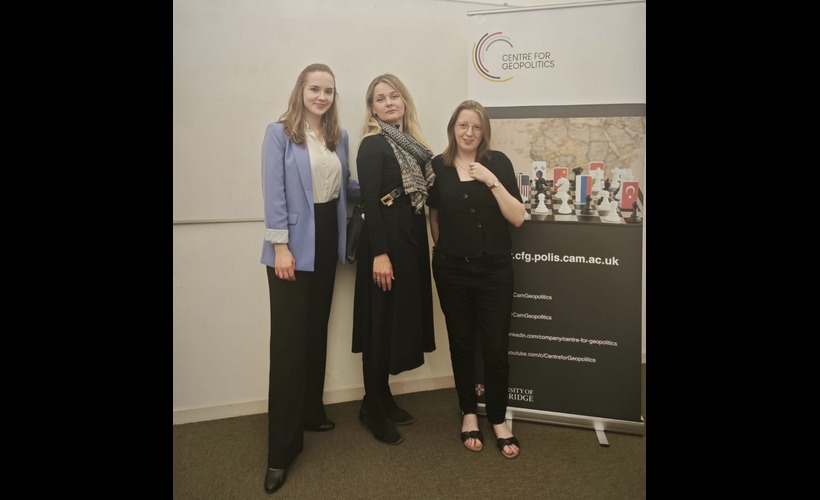The welcome to the Summer School from the Rector of Vilnius University, Professor Rimvydas Petrauskas, himself a historian, summed up the contemporary importance of the event, and the importance of university thinking, and gave a valuable outline of the historic relations between Lithuania and the UK:-
I am delighted to welcome you to Vilnius University. I don’t think anybody needs any additional explanation as to why the topic of this Summer School on “Baltic Geopolitics” is so important. Since the morning of February 24th – when the Russian Federation launched its unjustifiable military aggression against Ukraine – we have lived in a world of unpredictable geopolitical shift. It will certainly occur in one way or another and the need to think about the possible parameters of this shift by far transcends purely academic interests, since it will directly affect the lives of all Europeans. And, of course, we urgently need to explore what the foundations of a new European and global security policy should be. All this thinking must be done in a rational, focused, knowledge-based and contextual manner. And that is what we, the academics, can provide for societies consumed by the anxiety of war, manipulated by the media and biases of propaganda and distracted by other concerns. And that is how we, the academic community, show how relevant we are to the external world.
Here in Lithuania, we perceive ourselves not as in the zone of insecurity and danger, but as a fully-fledged partner of our allies who can contribute and expand the proper understanding of what is happening in this part of the world. This understanding will be critical in developing tools to contain the de-stabilizing forces and narratives.
A brief historical glimpse is enough to notice how the geopolitics of this region have always shifted, and how early it brought even the far away British people into contact with us. In the 9th century, the Englishman Wulfstan set out from the Danish port of Hedeby and travelled to the Baltic port of Truso. Later on, with the spread of Christianity and in the process of the Baltic Crusades, knights from England quite often visited the Baltic lands and left their mark, or even their lives, in the Lithuanian plains. While it is difficult to estimate the number of English knights who campaigned in the Lithuanian Crusades, the most famous was surely Henry Bolingbroke, Earl of Derby, who later became King Henry the IV in 1399.
In the 17th century Scottish dissidents chose the Grand Duchy of Lithuania as a safe haven. There was a small but influential community of Scottish merchants in the Lithuanian town of Kėdainiai, with Scottish surnames surviving in the area well into the eighteenth century.
Following the partitions of the Polish-Lithuanian Commonwealth, most of the lands of the former Grand Duchy became part of the Russian and Prussian political zone of interests. This occupation for more than a century froze the Lithuanian abilities to develop relations, but it all changed when during the First World War, Lithuania regained its independence. Despite all the turbulent changes and the Soviet occupation, Lithuania and the UK stood on the same side of history. Fighting against totalitarian regimes, protecting democratic values and respecting the rights of individuals.
This partnership and the understanding of the same moral ground have become really important in the last few decades. Our countries have become partners in NATO, fighting global terrorism and standing up to Russian aggression against Georgia and to the current war in Ukraine.
We share the same values and understanding of dangers created by a regime threatening all the world with its unpredictability and nuclear weaponry.
Meetings such as this one help us to improve the understanding of this region. This is why I am grateful to the Baltic Geopolitics Network of Universities, which works with the University of Cambridge to research relevant issues with intellectual rigour.
Next year we will celebrate the 700th anniversary of our capital city. In 1323, the Grand Duke of Lithuania Gediminas invited people from all over Europe to come to Vilnius and settle down for peaceful trade and business. I am happy to confirm that our commitment to open international cooperation continues to stand firm.







